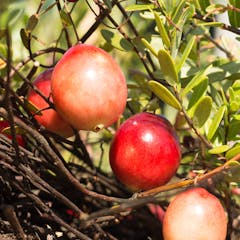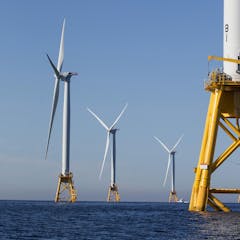
Articles on Massachusetts
Displaying 1 - 20 of 38 articles

Governments can do more to protect patients at for-profit nursing homes. A behavioral scientist who studies nursing homes weighs in.

South of Cape Cod, fiddler crabs and marsh grass have long had a mutually beneficial relationship. It’s a different story in the North, where the harms can ricochet through ecosystems.

Today’s cars include hundreds of computer chips, and carmakers say the data produced by those chips is proprietary – and a security risk. This means you don’t own the data your car generates.

Cranberries add color and acidity to Thanksgiving menus, but they also have many interesting botanical and genetic features.

Twelve states do not require sex education of any kind.

Evidence from Massachusetts suggests that a multistep process discourages enrollment. The findings could help policymakers stave off a sharp decline in coverage when COVID-19 policies change.

The recent anti-migrant actions of the Florida and Texas governors reflect specific hatreds that date back to the very beginnings of European settlement in North America.

A formal legal investigation would be needed to determine whether the Florida governor and associates violated human trafficking or other laws.

Lawmakers in the US Senate are set to vote on a bill that would enshrine abortion into law. But is there a route to legislation?

President Joe Biden has urged lawmakers to act over abortion rights following the Supreme Court decision to overturn Roe v. Wade. But is there a route to legislation?

The Supreme Court ruled May 2, 2022, in Shurtleff v. Boston, a free speech case.

The regionalism that fuels the Red Sox-Yankees rivalry is also found in U.S. attitudes about energy production, a new study shows. That could have repercussions for the renewable energy transition.

Shurtleff v. Boston, a case argued before the Supreme Court on Jan. 18, raises important questions about free speech and religion in public spaces.

It’s usually good news when a once-scarce species starts to recover – unless it starts getting in humans’ way. An ecologist explains how science can help predict unwelcome encounters.

Electric cars get a lot of hype, but what really matters for the climate are excess emissions from the many millions of gasoline vehicles still sold each year.

A social scientist argues that in the absence of strong government action, people took it upon themselves to work out conduct to stem the spread of virus.

Descendants from the Pilgrims were keen to highlight their ancestors’ role in the country’s founding. But their sanitized version of events is only now starting to be told in full.

The COVID-19 pandemic is interrupting scientific field work across North America, leaving blank spots in important data sets and making it harder to track ecological change.

‘Walden,’ published in 1854, is a manual for solitude with a purpose.

Powerful men often proclaim baseless accusations to be a ‘witch hunt.’ But American witch trials have always targeted a persecuted minority: women.
